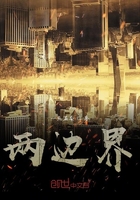"Yes, suh--here we are at that old-time place! "And our dark driver drew up his little victoria gently.
Through the open doorway, into a dim, cavernous, ruined house of New Orleans we passed. The mildew and dirt, the dark denuded dankness of that old hostel, rotting down with damp and time!
And our guide, the tall, thin, grey-haired dame, who came forward with such native ease and moved before us, touching this fungused wall, that rusting stairway, and telling, as it were, no one in her soft, slow speech, things that any one could see--what a strange and fitting figure!
Before the smell of the deserted, oozing rooms, before that old creature leading us on and on, negligent of all our questions, and talking to the air, as though we were not, we felt such discomfort that we soon made to go out again into such freshness as there was on that day of dismal heat. Then realising, it seemed, that she was losing us, our old guide turned; for the first time looking in our faces, she smiled, and said in her sweet, weak voice, like the sound from the strings of a spinet long unplayed on: "Don' you wahnd to see the dome-room: an' all the other rooms right here, of this old-time place?"
Again those words! We had not the hearts to disappoint her. And as we followed on and on, along the mouldering corridors and rooms where the black peeling papers hung like stalactites, the dominance of our senses gradually dropped from us, and with our souls we saw its soul --the soul of this old-time place; this mustering house of the old South, bereft of all but ghosts and the grey pigeons niched in the rotting gallery round a narrow courtyard open to the sky.
"This is the dome-room, suh and lady; right over the slave-market it is. Here they did the business of the State--sure; old-time heroes up therein the roof--Washington, Hamilton, Jefferson, Davis, Lee-there they are! All gone--now! Yes, suh!"
A fine--yea, even a splendid room, of great height, and carved grandeur, with hand-wrought bronze sconces and a band of metal bordering, all blackened with oblivion. And the faces of those old heroes encircling that domed ceiling were blackened too, and scarred with damp, beyond recognition. Here, beneath their gaze, men had banqueted and danced and ruled. The pride and might and vivid strength of things still fluttered their uneasy flags of spirit, moved disherited wings! Those old-time feasts and grave discussions --we seemed to see them printed on the thick air, imprisoned in this great chamber built above their dark foundations. The pride and the might and the vivid strength of things--gone, all gone!
We became conscious again of that soft, weak voice.
"Not hearing very well, suh, I have it all printed, lady--beautifully told here--yes, indeed!"
She was putting cards into our hands; then, impassive, maintaining ever her impersonal chant, the guardian of past glory led us on.
"Now we shall see the slave-market--downstairs, underneath! It's wet for the lady the water comes in now yes, suh!"
On the crumbling black and white marble floorings the water indeed was trickling into pools. And down in the halls there came to us wandering--strangest thing that ever strayed through deserted grandeur--a brown, broken horse, lean, with a sore flank and a head of tremendous age. It stopped and gazed at us, as though we might be going to give it things to eat, then passed on, stumbling over the ruined marbles. For a moment we had thought him ghost--one of the many. But he was not, since his hoofs sounded. The scrambling clatter of them had died out into silence before we came to that dark, crypt-like chamber whose marble columns were ringed in iron, veritable pillars of foundation. And then we saw that our old guide's hands were full of newspapers. She struck a match; they caught fire and blazed. Holding high that torch, she said: "See! Up there's his name, above where he stood. The auctioneer. Oh yes, indeed! Here's where they sold them!"
Below that name, decaying on the wall, we had the slow, uncanny feeling of some one standing there in the gleam and flicker from that paper torch. For a moment the whole shadowy room seemed full of forms and faces. Then the torch lied out, and our old guide, pointing through an archway with the blackened stump of it, said:
"'Twas here they kept them indeed, yes!"
We saw before us a sort of vault, stone-built, and low, and long.
The light there was too dim for us to make out anything but walls and heaps of rusting scrap-iron cast away there and mouldering own. But trying to pierce that darkness we became conscious, as it seemed, of innumerable eyes gazing, not at us, but through the archway where we stood; innumerable white eyeballs gleaming out of blackness. From behind us came a little laugh. It floated past through the archway, toward those eyes. Who was that? Who laughed in there? The old South itself--that incredible, fine, lost soul! That "old-time" thing of old ideals, blindfolded by its own history! That queer proud blend of ****** chivalry and tyranny, of piety and the abhorrent thing! Who was it laughed there in the old slave-market--laughed at these white eyeballs glaring from out of the blackness of their dark cattle-pen? What poor departed soul in this House of Melancholy? But there was no ghost when we turned to look--only our old guide with her sweet smile.
"Yes, suh. Here they all came--'twas the finest hotel--before the war-time; old Southern families--buyin' an' sellin' their property.
Yes, ma'am, very interesting! This way! And here were the bells to all the rooms. Broken, you see--all broken!"
And rather quickly we passed away, out of that "old-time place"; where something had laughed, and the drip, drip, drip of water down the walls was as the sound of a spirit grieving.
1912.















